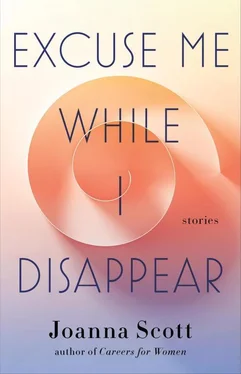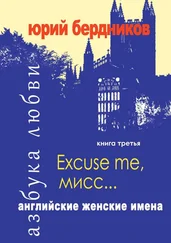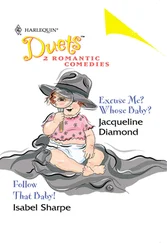The woman watches as the colorful balloons rise and separate. The trumpeters abruptly stop playing. The crowd responds with a respectful silence. For a moment, only the precise cadence from the drummers can be heard. Then even the drummers stop, and everything seems to freeze, as if locked inside a still frame of the video she has been taking, until, all at once, the whole scene shatters as machine guns belonging to soldiers the woman hadn’t even noticed explode in rapid fire.
Her heart skips a beat and she drops her phone; she feels one of her friends stumble sideways and bump against her. Her first panicked assumption is that she is being gunned down, until she sees the bits of colored Mylar dropping from the sky and realizes that the machine guns had been aimed at the balloons.
The crowd erupts in cheers, and the children start running around again, racing to collect pieces of balloons. The woman and her friends share the forced laughter meant to disguise the relief following their mistaken impression. She scrambles to grab her phone before it is crushed underfoot. When she looks up again, she finds that the crowd has shifted and relocated to open a space within it, and she ends up in the front row, her view of the proceedings unimpeded.
When the police sedan pulls into the paved turnaround below the gatehouse and starts honking, Miranda, the housekeeper, leans out the upper-story window.
“Stop the racket!” she shouts. She is famous in the village for her sharp tongue and haughty manner. Some believe that she is of Romany descent; shopkeepers say she has the thieving guile of a Gypsy. She was taken into Luca’s family when she was a teenager and has worked at the villa ever since; when she married, her husband was hired as a gardener, and when her two sons came of age they were placed by Luca’s wife in well-paid positions in the accounting department of her corporation. Miranda repays the family’s loyalty with her own. And while she can’t know exactly what the police have come for, she can tell when the driver lays his hand on the horn again that they are up to no good. If good was their intention, the driver would have stepped out of the car instead of honking the horn; he would have taken off his cap in deference and given Miranda a polite greeting before requesting entrance.
She pulls the shutters closed, and instead of pressing the button that would open the gates, she hurries downstairs and across the yard to the back door of the main villa.
“The police are here,” she hisses as she flies past the kitchen, where the cook is stirring a pot, reducing a fish stock to a savory syrup. “The police are here,” Miranda hisses to the cook’s little son, who is in the hallway dangling a piece of string in front of a kitten. “The police are here,” Miranda announces as she throws open the door of the library without knocking, causing Luca to lose control of his pencil just as he is crossing the t , causing the line to veer up at an angle, cutting across the sentence above it.
Miranda’s plump chest heaves as she stares at Luca. Luca blinks in confusion. Outside, they can hear the angry wailing of the car horn.
“Where are the children?” Luca asks.
“They are in Lausanne,” Miranda reminds him.
“Of course, of course, what was I thinking… and Jenny?”
“She’s at work.”
“That’s good, yes, it’s normal, and the police… they are looking for me, then?”
“They didn’t say.”
They didn’t need to say. No explanation is necessary. Luca doesn’t need to be told about the slow, inexorable shift in public sentiment. He knows that those who fail to produce bald propaganda are regularly denounced as traitors and subjected to prosecution. He has been expecting the authorities to come for him for so long that he almost forgot them. Now he is faced with the choice he was unable to make in the abstract: he must agree to suppress all his work and never write another word, or else he must go into exile. If he chooses the latter course, what will become of his wife and children? If they join him, they will be forced to live an impoverished, fugitive existence for the rest of their lives. If he leaves them behind, they will suffer the repercussions of his cowardice, in his place.
He neatens the pages on his desk, stacking them in a uniform block. In a symbolic gesture whose meaning he is sure the police captain will understand, he sets his reading glasses on top of his unfinished manuscript. He pushes his chair from his desk.
“Miranda, would you tell the police, please, that if they want to talk with me, they can find me in the rose garden?”
The brown of her eyes has the particular depth of pigment you can only find in the eyes of people who are very old, when the whites around the irises have dulled. She gives a slight nod that to anyone else would indicate merely her willingness to follow a direction but to Luca communicates her fierce desire to protect him.
He puts on the white silk smoking jacket with gray cuffs that used to belong to his father. The door to the terrace opens reluctantly. Luca must add the pressure of a kick to the initial nudge from his shoulder. He leaves it ajar behind him. As he follows the stone path, he rehearses in his mind whole sentences that he will never go on to write. He has no regrets in the wake of his surrender, though at the same time he cannot hold back his tears. His cheeks are wet as he continues down the uneven path. He resists the urge to return to the terrace and listen through the open door, so he doesn’t have the opportunity to hear the crunching thump Mario makes when he crushes Luca’s reading glasses with his fist.
Drummers drum, trumpeters trumpet, colored confetti rises in bursts and settles into the cracks between the paving stones. The American woman and her friends are charmed by the festival and pleased with their good luck at having come upon it by accident. The surrounding buildings are tall enough to cast cooling shadows. As if to join the fun, a refreshing breeze picks up. The beautiful children, brown and limber, chase one another in a game of tag. The round, curious eyes of a long-haired Chihuahua peek out from a pocket of a young man’s backpack. At the far end of the piazza, the stones come to an end abruptly, and the terraces below are hidden from view, giving the illusion that they are on a cliff high above the sea.
The music stops abruptly, and only then does the woman notice the uniformed men who have taken their place on the stage of the band shell. One of them begins speaking into a microphone, causing the sound system to erupt in a piercing squeal. He taps the microphone and tries again, counting in his language, “One, two, three”—that is all the woman can decipher of the speech that follows, a long speech delivered in the dutiful manner that suggests nothing unexpected is being revealed. She and her friends fiddle with their phones, trying to use what little broadband service there is to post their pictures on Facebook. She is glad when the speech is over, and the band begins playing again, and the musicians leave the stage and proceed across the piazza. She joins them, following the people, who are following the men in uniform, who are following the musicians.
She has no way of knowing, of course, that the procession is traveling along the same route that Mario’s aunt took after being revealed as a collaborator in the aftermath of the last war. She cannot know that as Mario walks in the procession he is remembering the stories he’s been told about his aunt, who was stripped naked, her hands bound, her head shaved, and was dragged by a rope around her neck down the middle of the street. His mother told him that collaborators were given laxatives before they were paraded in front of the people, but she never said what the collaborators had done to deserve their punishment.
Читать дальше












